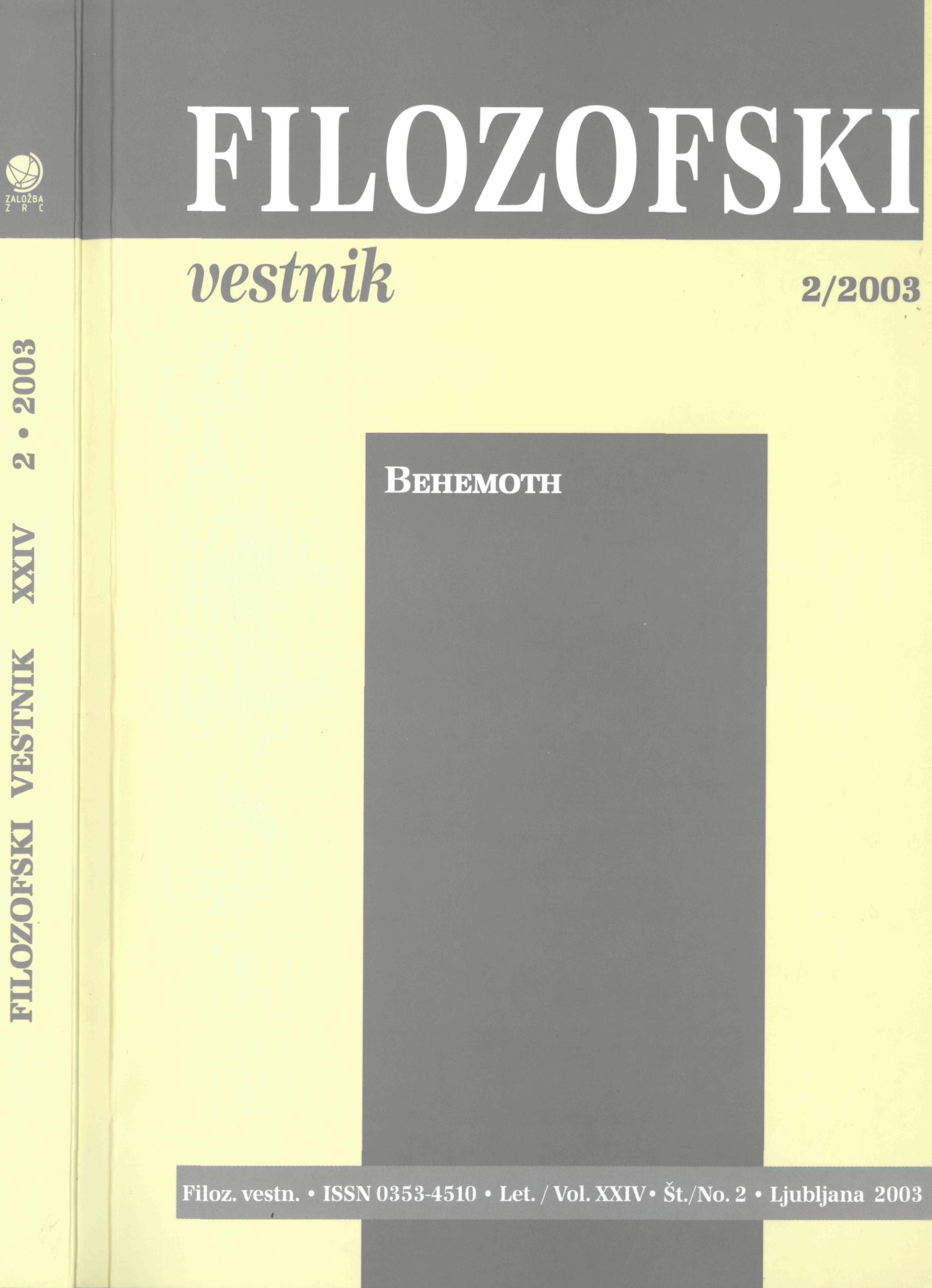Niti Behemoth niti Leviathan: razlaga Hobbesove neliberalne politike
Ključne besede:
Thomas Hobbes, liberalizem, dostojanstvo posameznika, različnost, demokracijaPovzetek
V Hobbesovem Behemothu najdemo živo ilustracijo zgodovinskih posledic neupoštevanja njegovih zgodnejših kritik poskusov omejitve ali delitve javne oblasti. Hobbeso-va zgodovina angleške državljanske vojne nas svari pred ekstremnimi zahtevami po izvzetju posameznikov ali skupin izpod vladavine občih zakonov, vendar so rešitve, ki jih sam predlaga, konec koncev nesprejemljive, ker niso dovolj liberalne. Avtor dokazuje, da Hobbes sicer napotuje k liberalizmu, ko spodkopava teleološke utemeljitve politik klasičnega republikanstva in naravnega zakona, vendar pa se ne ustavi pri tem, temveč zanika tudi osrednje liberalne ideale. Hobbesovo zavračnje zavezanosti človeškemu dostojanstvu, sprejemanja različnosti in demokracije izraža njegov metafizični voluntarizem, skrajni determinizem in prikazovanje državljanov kot zgolj pod-ložnikov. Vse to se steka v obrambo nepregledne in absolutne suverene oblasti, ki jo velja v današnjih razmerah zavreči.Prenosi
Podatki o prenosih še niso na voljo.
Prenosi
Objavljeno
2016-01-03
Kako citirati
Lund, W. (2016). Niti Behemoth niti Leviathan: razlaga Hobbesove neliberalne politike. Filozofski Vestnik, 24(2). Pridobljeno od https://ojs.zrc-sazu.si/filozofski-vestnik/article/view/3387
Številka
Rubrike
Articles
Licenca
Avtorji jamčijo, da je delo njihova avtorska stvaritev, da v njem niso kršene avtorske pravice tretjih oseb ali kake druge pravice. V primeru zahtevkov tretjih oseb se avtorji zavezujejo, da bodo varovali interese založnika ter da bodo povrnili morebitno škodo.
Podrobneje v rubriki: Prispevki





